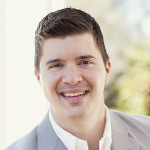 On Thursday, Nov. 10, members of my community in Greensboro, N.C., gathered at Greensboro’s Koury Convention Center for the 50th annual dinner of the National Conference for Community and Justice. The NCCJ works to end bias, bigotry and racism in all of its forms through programs in education and advocacy. It was a fitting time to gather in commitment to such inclusion, following a campaign season that emboldened the extremes of bias, bigotry and racism that the NCCJ works against. In that room on that night, members of our community — some with differing political preferences from one another — joined together in a common commitment to justice and community.
On Thursday, Nov. 10, members of my community in Greensboro, N.C., gathered at Greensboro’s Koury Convention Center for the 50th annual dinner of the National Conference for Community and Justice. The NCCJ works to end bias, bigotry and racism in all of its forms through programs in education and advocacy. It was a fitting time to gather in commitment to such inclusion, following a campaign season that emboldened the extremes of bias, bigotry and racism that the NCCJ works against. In that room on that night, members of our community — some with differing political preferences from one another — joined together in a common commitment to justice and community.
So it was all the more jarring when on Sunday this very same setting — the Koury Convention Center in Greensboro — was site of a vile display of racism. Alpha Phi Alpha — a historically black fraternity — held its annual state meeting at Koury over the weekend. On Sunday, members entered the bathroom closest to their meeting space to find racist graffiti on the wall of a bathroom stall: the “n-word,” surrounded by a swastika, a phallic symbol, and the letters “KKK.”
The Southern Poverty Law Center has received reports of over 700 incidents of hate speech and harassment in the United States in the days since the election — an uptick that reminds them of the spike in such incidents following Sept. 11, 2001. The highest number of reported incidents are anti-black and anti-immigrant, followed by anti-Muslim. Many of us have heard reports from within a couple degrees of separation. A friend of a friend described an incident in her neighborhood. A friend’s mother talked about hate speech in her classroom. A member of a former church, who is originally from Mexico, was told to “get ready to go home” in the elementary school drop-off line. And a minister who grew up in my church described the reported incident at a church youth conference, where teenagers with brown skin were targets of messages that read “build a wall.” All of these occurred here in North Carolina.
But with the graffiti at Koury, the post-election hatred and racism was evidenced in close proximity to where I live, work and worship. It occurred, in fact, in the very place where I hope to practice justice, to pursue it with my congregation and community, and to see it grow in my children.
We could reflexively point to the fact that the Convention Center staff erased the message just as soon as it was reported. Within 20 minutes it was gone, so as not to offend our sensibilities or disrupt the ideals we hold of our community. It’s enough to let us believe we are spotless and clean, as though treating the surface is enough.
We could also reassure ourselves that it occurred in a hotel and convention center, therefore being the work of people who were passing through. The racism and hatred must, then, lie with the outsiders. Not with us.
Such reflexive reactions are nothing new. Many of us choose civility and polite avoidance to meaningful engagement with the underlying roots of racism and hatred. In Greensboro, we pride ourselves on being a “progressive” Southern city — the site of the “Greensboro Four,” the Woolworth sit-ins, racial and ethnic diversity, and strong interfaith coalitions. But when racism is written on our walls, it forces us to take responsibility. It’s not somewhere else. It’s not someone else.
In the very same site occurred a dinner celebrating inclusion and acceptance and an act of vandalism designed to intimidate and dehumanize. If Thursday represented what we long to be, Sunday represented who we still are. It’s a short span between what we want to be and what we are. Sometimes as little as three days.
Or it might be a span of five months. Those associated with the Cooperative Baptist Fellowship will recognize that the Koury Convention Center was also site of the CBF’s General Assembly in June. At that meeting we pledged anew a commitment to global missions and cultivating beloved community across borders and boundaries. We heard stories of relationship among those marginalized. In the wake of the shooting at Pulse nightclub and other acts of violence and hate, we read a statement pledging to be committed to inclusion and love.
But it’s a short span between what we long to be and what we are. When such hatred hits home, we have the opportunity to recognize it has been here all along and redouble our efforts for our homes, our cities, our neighborhoods, our churches, our denominations to become what we long for in our country: a place of welcome and acceptance that sees the end of bias, bigotr, and racism in all its forms.
